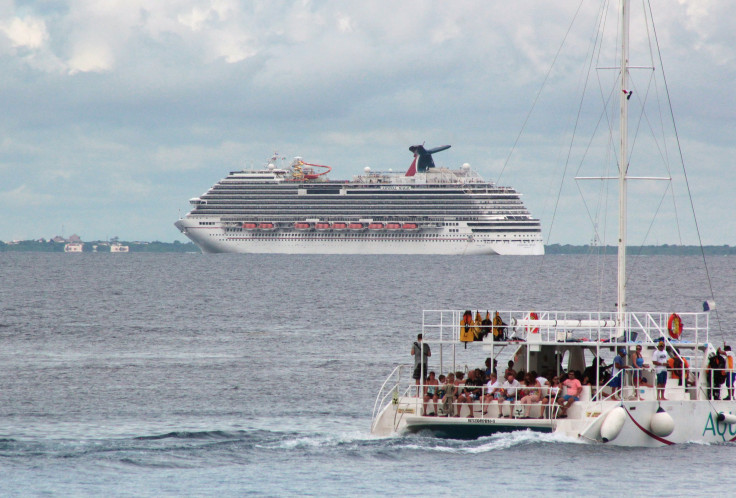It’s Stomach Flu, Not Ebola, That Cruise Travelers Should Worry About

Panic over Ebola hit the open seas recently, when a cruise ship carrying a Dallas health worker who may have handled specimens from Ebola victim Thomas Eric Duncan was forced to turn back to port.
But when taking a cruise, it’s not Ebola you should worry about. Gastrointestinal infections like those caused by the norovirus and respiratory tract illnesses are what plague cruise ships the most, reports the World Health Organization.
Indeed, earlier this year, there were eight virus outbreaks on cruise ships in just four months, affecting hundreds of passengers. (The Centers for Disease Control tracks GI illnesses on international cruise ships; you can view them online.)
In order to prevent outbreaks and keep cruise travelers healthy, the CDC launched the Vessel Sanitation Program as far back as 1975. As part of the program, the CDC conducts two unannounced inspections of cruise ships twice a year, grading them on a 100-point scale. Anything below 85 is considered failing and is enough to keep ships docked until they lift their standards. (You can see how your cruise line or ship stacked up through the VSP’s search tool online.)
Cruise lines are vigilant about keeping customers safe, said Carolyn Spencer Brown, editor of CruiseCritic.com. “They are extremely proactive when it comes to preventing the spread of illness on ships,” she said. “The process begins even before passengers board: Every person checking in has to fill out a form with questions related to their health. If there are any signs that a passenger may be coming down with something, the ship’s doctors will evaluate the passenger to be sure they’re healthy enough to board the ship.”
Of course, that’s not always foolproof, as this year’s outbreaks demonstrate. If there is an illness suspected on board, said Brown, passengers may be quarantined in their cabins. “The cruise line will begin working to sanitize the ship immediately,” said Brown, while other passengers are encouraged to be vigilant. “There may be changes made to food service -- buffets may close, individual condiments may be provided. Back in port, the cruise line will take extra steps to ‘super scrub’ the ship -- every inch will be thoroughly sanitized before the next sailing.”
The No. 1 way to prevent illness, say experts from the CDC, is the same one your mother drilled into you as a kid: wash your hands. Many cruise ships have installed hand-washing stations outside their dining venues, and it's recommended that passengers use them before each meal. Scrub your hands every time you’re in your stateroom, and at various points throughout the day. Avoid touching bathroom doors and railings, and if you must, use a towel.
You’re also likely to encounter a lot of buttons on a ship -- in the elevator, at the soda or water fountain, on the touch screens many ships are installing to give guests information. Try not to use the pads of your fingers; use your knuckles instead, said Jason Cochran of Frommer’s. Your knuckles are less likely to come in contact with your moist membranes.
And when you're at the buffet, make sure the hot food is actually hot and the cold food is actually cold. Lukewarm temperatures are breeding grounds for bugs, so let a crew member know if food is not kept at the proper level -- and avoid eating it. Michael Zimring, director of the Center for Wilderness and Travel Medicine at Mercy Medical Center in Baltimore, Maryland, suggests avoiding buffet meals entirely -- or try being the first one there, when the food is fresh and no one else has touched it.
You’ll also want to get plenty of rest. The dizzying number of attractions on many cruises can entice you to ignore things like sleep and proper rest, but that’s what you’ll need to keep your immune system in top form to fight any potential illnesses.
© Copyright IBTimes 2024. All rights reserved.











